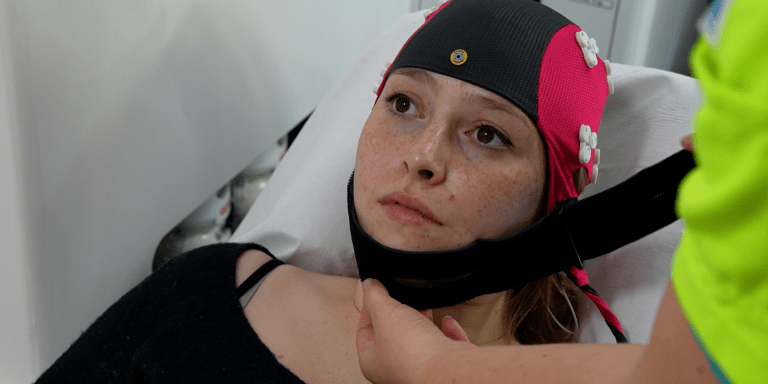WHAT’S NEW IN NEURO
Strokes May Now be Diagnosed in Ambulances
Every year, millions of individuals experience ischemic strokes, which occurs when a blood clot in the brain. Because there’s an inadequate supply of blood, accurate immediate treatment is essential to prevent long-term disabilities and improve patient outcomes.
Now, researchers in The Netherlands have come up with a faster way to detect large ischemic strokes. By using a unique “brain-wave cap,” patients will be able to receive proper treatments more quickly than ever – even before they reach the hospital.
From 2008-2012, the smart brain-wave cap was tested on 400 patients in a variety of ambulances. The results, published in Neurology, indicate a high degree of success identifying large ischemic strokes.
WHAT’S NEW IN NEURO
Strokes May Now be Diagnosed in Ambulances
Every year, millions of individuals experience ischemic strokes, which occurs when a blood clot in the brain. Because there’s an inadequate supply of blood, accurate immediate treatment is essential to prevent long-term disabilities and improve patient outcomes.
Now, researchers in The Netherlands have come up with a faster way to detect large ischemic strokes. By using a unique “brain-wave cap,” patients will be able to receive proper treatments more quickly than ever – even before they reach the hospital.
From 2008-2012, the smart brain-wave cap was tested on 400 patients in a variety of ambulances. The results, published in Neurology, indicate a high degree of success identifying large ischemic strokes.
The inventors of this cap, neurologist Jonathan Coutinho, technical physician Wuoter Potters, and radiologist Henk Marquering (Amsterdam UMC) believe this device’s ability for an electroencephalogram (EEG) to be administered in an ambulance is a true lifesaver. Brain-wave tests can reveal whether a stroke is present as well as the size of the blocked blood vessel.
This allows medical personnel to determine treatment, which is particularly important with strokes, since time can often affect one’s chance of survival. If the stroke is small, the patient may require a blood-thinning medication, while a large one may necessitate a mechanical thrombectomy at a specialized hospital.
From 2008-2012, the smart brain-wave cap was tested on 400 patients in a variety of ambulances. The results, published in Neurology, indicate a high degree of success identifying large ischemic strokes.
Carrie Collins, CEO of the Brain Injury Alliance of Arizona, says this new cap is truly revolutionary. “When it comes to brain injury after a stroke, time is brain. Every second that a stroke goes untreated, the brain is quickly and irretrievably lost. Bottom line: The faster the correct treatment begins, the better it is for the patient. The development of this brain-wave cap indicates the importance of ongoing research and support to help those in various stages of recovery.”
To make this cap available for widespread distribution, Amsterdam UMC has already created a separate company called TrianecT, and is conducting a study to develop an even more accurate algorithm to recognize large ischemic strokes.
ABOUT BRAIN INJURY ASSOCIATION OF ARIZONA
The Brain Injury Association of Arizona (BIAAZ) is the only statewide nonprofit organization dedicated to improving the lives of adults and children with all types of brain injuries through prevention, advocacy, awareness and education. BIAAZ also houses the Arizona Brain Health Resource Center, a collection of educational information and neuro-specific resources for brain injury survivors, caregivers, family members and professionals.
What began in 1983 as a grassroots effort has grown into a strong statewide presence, providing valuable life-long resources and community support for individuals with all types of brain trauma at no charge.






